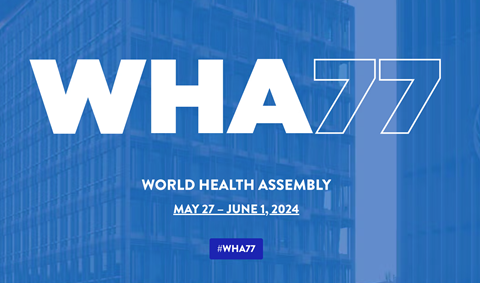Haruna Gimba with agency report
Member countries of the World Health Organisation (WHO) have kicked off the World Health Assembly’s annual assembly in Geneva, Switzerland on Monday with hopes of improving global readiness for deadly outbreaks like COVID-19, after an ambitious “pandemic treaty” ran aground last week.
Health officials are racing to get the world to agree to new ways to prepare for and fight an inevitable future pandemic. COVID-19 is fading into history as elections and crises like climate change and war compete for the public’s attention.
A bold project to adopt a pandemic “treaty” at this week’s WHA was shelved on Friday as two and half years of work ran into disagreements over sharing information about pathogens that cause pandemics and the technology used to fight them.
Experts say the best chance now to address pandemics at the assembly will be proposed changes to the WHO’s International Health Regulations, which were set up in 2004.
Amendments would urge countries to boost alert, detection and containment capacities and cooperate internationally. One proposal would let the WHO director-general declare a “pandemic emergency.”
Envoys say a deal is close, but similar disagreements between rich countries and developing ones that set back the pandemic treaty negotiations linger.
Issues remain over proposed “transfer of technology” and the creation of a new fund under WHO in 2030 that would help boost pandemic-fighting capacities “particularly in developing countries.”
WHO Director-General Tedros Adhanom Ghebreyesus insists the stalled work on the pandemic treaty was not a failure, and acknowledged an “immense” task on a “very ambitious timeline,” alluding to the many years it usually takes for United Nations member countries to reach global treaties.
“Of course, we all wish that we had been able to reach a consensus on the agreement in time for this health assembly and cross the finish line,” Tedros said in opening remarks. “But I remain confident that you still will — because where there is a will, there is a way.”
“It’s now for this World Health Assembly to decide what that way is — meaning the solution is in your hands,” he added.
The premise is that pathogens that have no regard for national borders require a united response from all countries. But decision-makers have struggled to balance national interest with the call from WHO officials to think more broadly in the interest of humanity.
Health ministers now have to try to overcome deep-set differences, including how the world can share information on emerging pathogens and scarce resources like vaccines when demand skyrockets.
“If nothing comes out of WHA (the assembly), it’s a huge missed opportunity,” said Yuanqiong Hu, a senior legal and policy adviser at Doctors Without Borders, “If they don’t come up with a clear road map, how are they going to finish this process?”
Meanwhile, two scientists have been awarded the WHO’s Award for Global Health for their outstanding contributions to the development of messenger ribonucleic acid (mRNA) vaccines against COVID-19.
The WHO Director-General, Dr Tedros Ghebreyesus, presented the award to Professor Katalin Kariko and Professor Drew Weissman of the University of Pennsylvania at the opening of the annual World Health Assembly (WHA).
The Prime Minister of Barbados, Mia Mottley, was also awarded for her leadership in climate action and health and her work as the chair of the Global Leaders Group on Antimicrobial Resistance.
“Professors Karikó and Weissman played a key role in alleviating the burden of COVID-19, and saved lives during the pandemic.




